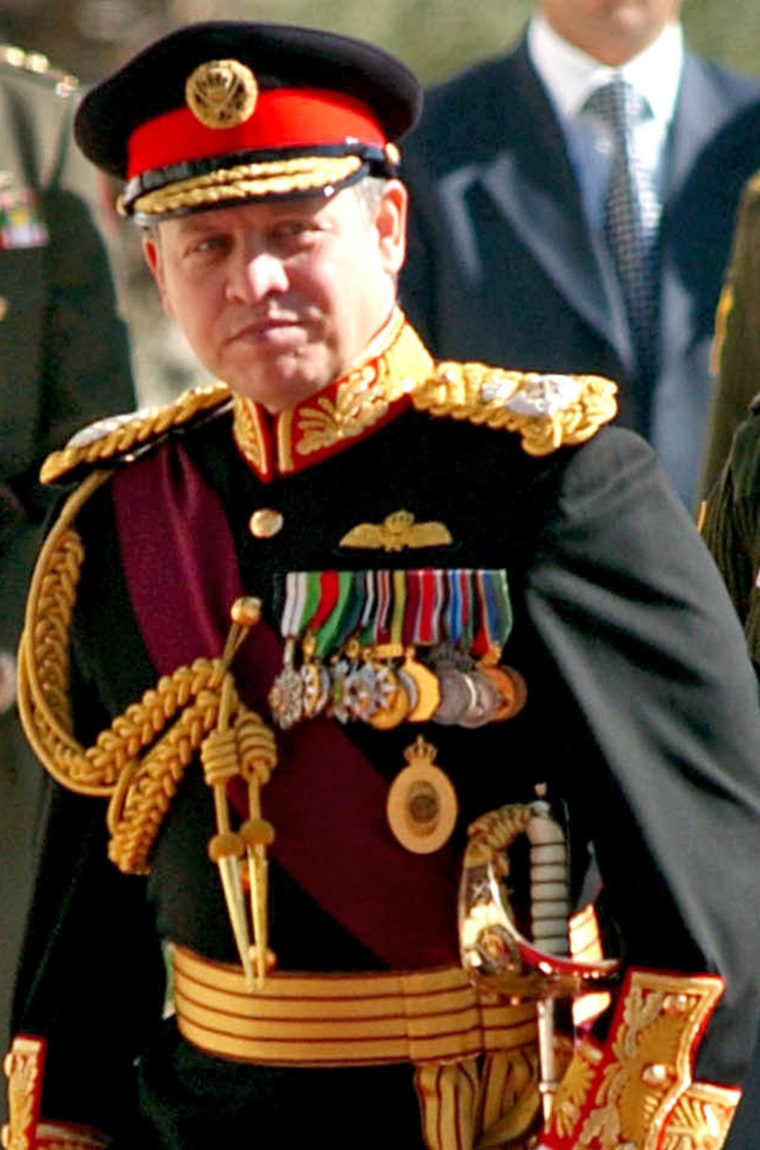Elections in Iraq could lead to the creation of a Shiite-led Islamic republic closely aligned with Iran, a development that “would be very destabilizing for the Gulf countries and actually for the whole region,” Jordan’s King Abdullah II said Wednesday in an exclusive interview with MSNBC-TV’s Chris Matthews.
The Jordanian monarch, who was in Washington for meetings with President Bush and other U.S. officials, called such an outcome a “worst-case scenario.” But he indicated that it is not beyond the realm of possibility given Iranian influence in Iraq’s Shia community and threats by Sunni Muslims to boycott the election.
“The worst outcome (is) if you don't have a secular state, in other words if the new government is strongly represented by those that might have support from Iran,” he said. “We are hoping that's not the case.”
Concerns of destabilization
“… If it was a Shia-led Iraq that had a special relationship with Iran, and you look at the relationship (among) Syria, Hezbollah (and) Lebanon, then we have this new crescent that appears that would be very destabilizing for the gulf countries and actually for the whole region,” he said.
In response to questions, Abdullah expressed concerns that both Iraq's most powerful religious leader, Grand Ayatollah Ali Husseini al-Sistani, and Ahmed Chalabi, leader of the Iraqi National Congress and a former member of the U.S.-appointed Iraqi Governing Council, are under Tehran’s influence.
For that reason, the participation of Iraq’s Sunni Muslims in the elections scheduled for Jan. 30 is critical, he said.
“We want them to go to the elections, we want them to be part of the process,” he said. “If they are not, it could be more difficult.”
Abdullah, who succeeded his father, King Hussein, as Jordan’s monarch in 1999, said the election will be pivotal in determining whether President Bush’s vision of a democratic Iraq will be realized.
‘A new phase of Iraqi life’
“The election is a new phase of Iraqi life,” he said. “If it moves in the right direction and Iraq can be pulled into the international community, then we will be better off. But I think the jury is still out. It’s going to take some time.”
Abdullah, a supporter of the U.S.-proposed “road map” peace plan in the Middle East, also expressed his hope that the Jan. 9 Palestinian election to choose a successor to the late Yasser Arafat will lead to reopening of peace talks with Israel.
“President Bush right after elections was very adamant to point out his support for the peace process,” he said. “… Now, hopefully, after Palestinians have their elections on January 9, there will be a Palestinian partner for peace. Our job then is to get the Palestinian Authority to engage with the Israelis, and then it takes the ‘quartet’ — the United States, the United Nations, the European Union and Russia — to step in and say, ‘Enough is enough. You two sides have to go through the road map.’”
